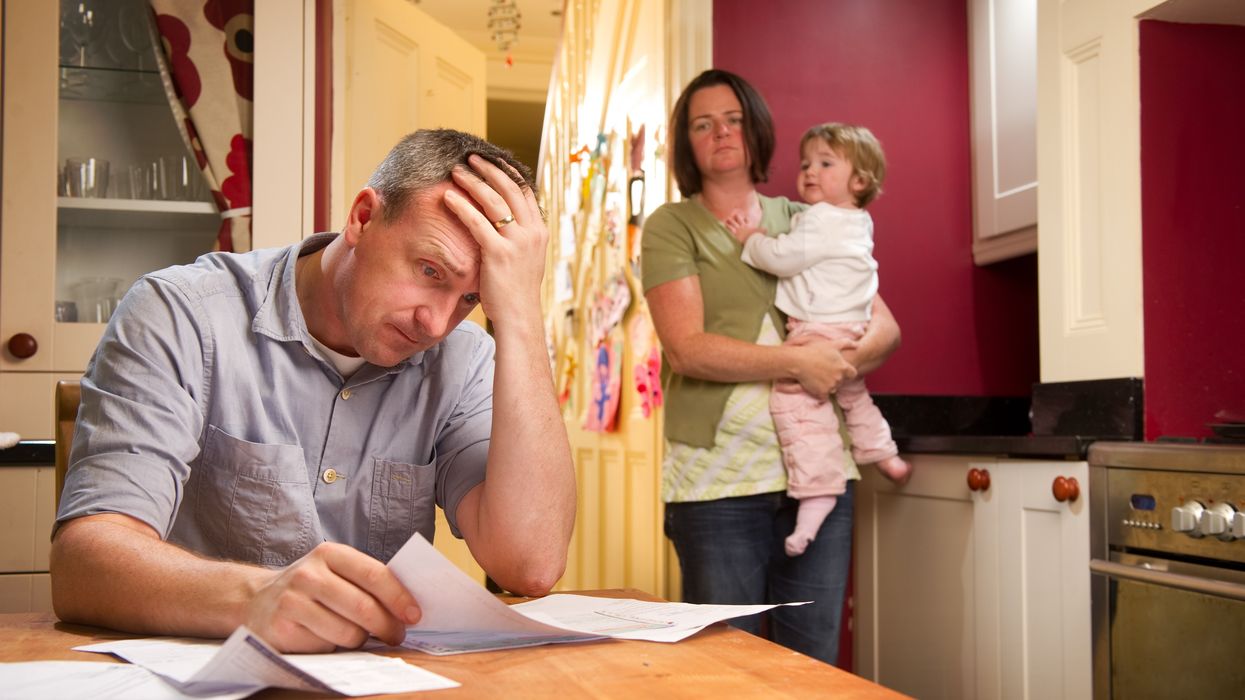Families at ‘breaking point’ as household debt to reach record high over £1,600

Families are at "breaking point" as household debt is set to rise by over £1,600 this year
| GETTY
Unsecured debt could see a real-terms surge of 9.4 per cent per household on average
Don't Miss
Most Read
Latest
Families are at "breaking point" as household debt is set to rise by over £1,600 this year, according to a new report.
Household debt is on course to increase by 9.4 per cent in real terms, on average, per household, making it the largest annual rise – in cash terms – since records began in 1987.
Unsecured household debt includes things such as loans and credit cards but excludes mortgages and student loans.
TUC analysis found that it is set to rise by over £1,600 this year as families continue to struggle with the cost of living crisis.
The union body said its research suggested that two in five people have cut back on essentials like food and utility spending this year.
A fifth of respondents to a survey of 2,100 people said they have fallen behind on household bills this year and more than one in four have taken out loans to cover unexpected bills since the start of the year.

The union body said its research suggested that two in five people have cut back on essentials like food and utility spending this year
| PEXELSPaul Nowak, TUC general secretary said: “These findings show how out of touch this Conservative Government is with people’s struggles.
“While the Tories boast about their plan working, households across Britain are being pushed further into debt.
“No one should have to rely on credit cards and loans to make ends meet, but after 14 years of flatlining wages – and the worst cost of living crisis in generations – many families are at breaking point.
“The Tories’ economic record speaks for itself. Pay packets are still worth less today than in 2008 with working people on course to end this Parliament poorer than at the start.”
The TUC says working people have been left brutally exposed to rising costs and household debt after years of pay stagnation.
UK workers are on course for nearly two decades of lost living standards with real wages not forecast to recover to their 2008 level until 2026.
The TUC estimates that the average worker would now be £14,700 better off if their pay had kept up with pre-crisis real wage growth trends since 2008.
Six in 10 say they have cut back on non-essential spending like dining out and entertainment since the beginning of the year.
Around 19 per cent of respondents say they have fallen behind on household bills this year – jumping to 28 per cent for people aged 18-24.
27 per cent say they have taken out debt (loans, credit) to cover unexpected bills since the start of the year. But it rises to over a third for adults aged 25-49.
LATEST DEVELOPMENTS:
By 2026 unsecured household debt is forecast to increase to a record level of £17,200.
This would exceed the previous high of £16,800 set in 2007, the TUC said in research carried out at the end of 2023.










